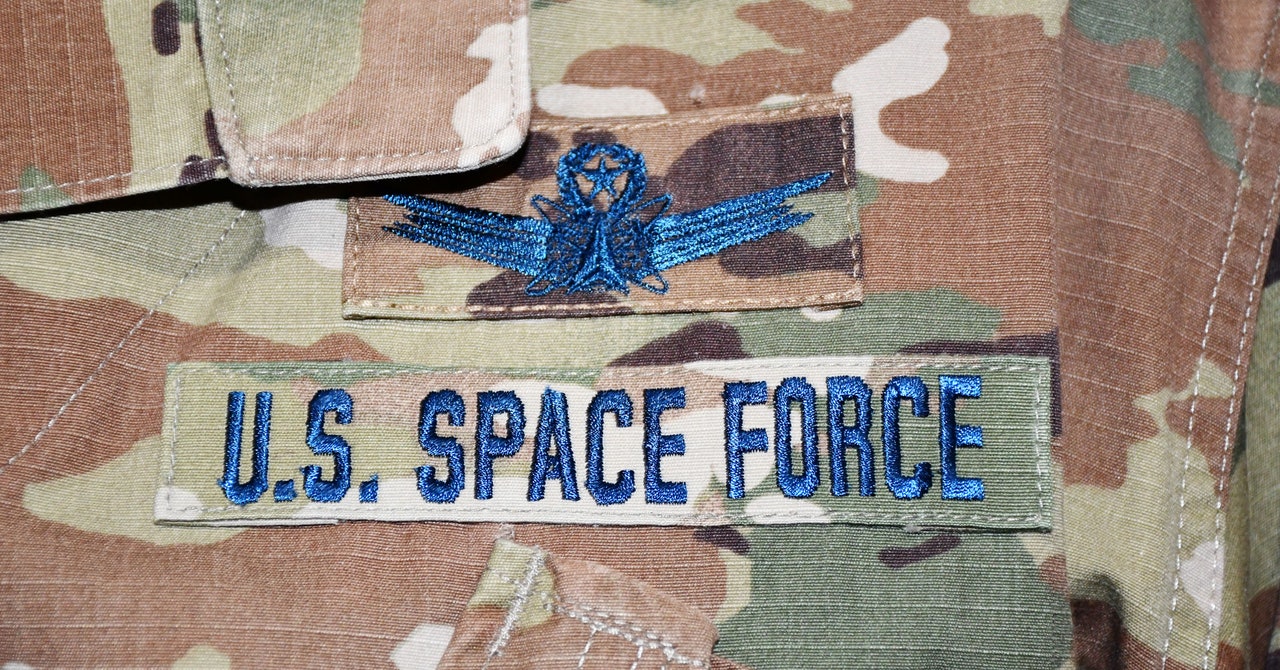
But that was not always the attitude at the Department of Defense, as Lauderback knows well. She entered the Air Force the same year “Don’t ask, don’t tell” went into effect. “I have firsthand knowledge of what it means to work in a noninclusive environment, and I would describe it as personally upsetting, challenging, and demeaning at times,” she said. “I put my desire to serve the nation above my desire to live a normal life.”
Years later, when then president Barack Obama repealed “Don’t ask, don’t tell,” Lauderback wasted no time. “There was no way I was going to hide at that point,” she said earlier this month at a storytelling event hosted by the Air Force. “Whoever asked, I was going to tell.” The removal of the policy gave her confidence because it didn’t technically matter if the listener was on board with her identity. “Somebody had my back if, in fact, somebody disagreed or discriminated against me,” she continued.
But those on-paper policies haven’t played out so simply over the past decade. In a 2020 report in Sexuality Research and Social Policy, researchers from the Department of Defense-funded Military Acceptance Project analyzed the results of 37 in-depth interviews with personnel on bases worldwide. “Half of participants feared that the military environment, at both the institutional and interpersonal level, is not yet LGBT-inclusive,” the authors wrote.
Another study from the project, published in the Journal of Traumatic Stress, surveyed a larger group and found that about 56 percent of straight, cisgender people in the service experience sexual harassment. But about 80 percent of lesbian, gay, and bisexual service members do, as do about 84 percent of transgender people.
Lauderback said she hadn’t fully realized the challenges her LGBTQ colleagues were facing, since her experience with coming out—and being out—had gone smoothly. But as she mentored others about their own coming out, she realized something: “They were still scared to,” she said. And she started thinking, “Maybe this isn’t as good for everybody as it has been for me. And so I wanted to see if there was a need for the group.” Last fall, she began probing, and this spring, LIT went live.
INET was born around the same time. “We want all airmen and guardians to feel a sense of belonging,” says Adams. “And that takes work.”
Some of the hardest work LIT will face is addressing the concerns of its disparate members. “They are very different groups, and we think of them as a homogenous group,” says Carl Castro of the University of Southern California, who helped lead the Military Acceptance Project. “In the main, LGB service members are doing pretty good,” Castro continues. “They could do better, but they’re not doing that bad.” Things are more difficult, and different, for trans people, who, for instance, currently need permission from a commander to start transitioning, says Castro.
The military has a vested interest in making all of those groups feel welcome. “Their main priority is readiness, and the readiness of the military to act in any moment,” says the University of Southern California’s Jeremy Goldbach, also a Military Acceptance Project leader. “And when you have communities that experience being left out, being marginalized, being treated differently, it makes it difficult for people to feel like they’re able to operate in a unit.”
LGBTQ service members specifically don’t want to be treated differently. According to his research, Goldbach says, “their measure of equity was: ‘Judge me on the job I do.’” Or, he says, people told him: “The reason I feel supported in my unit is because it’s a nonissue.”


